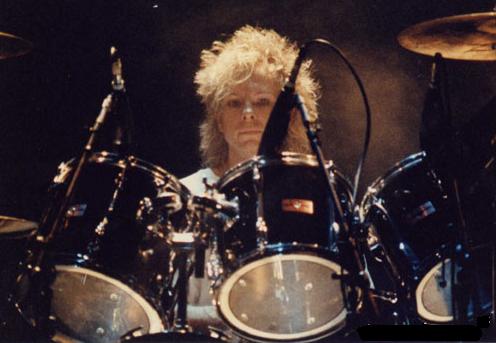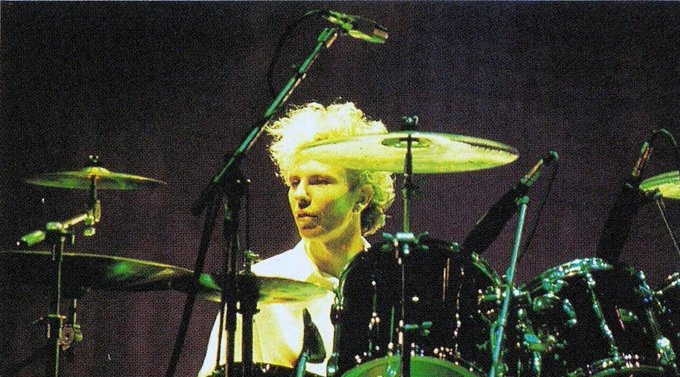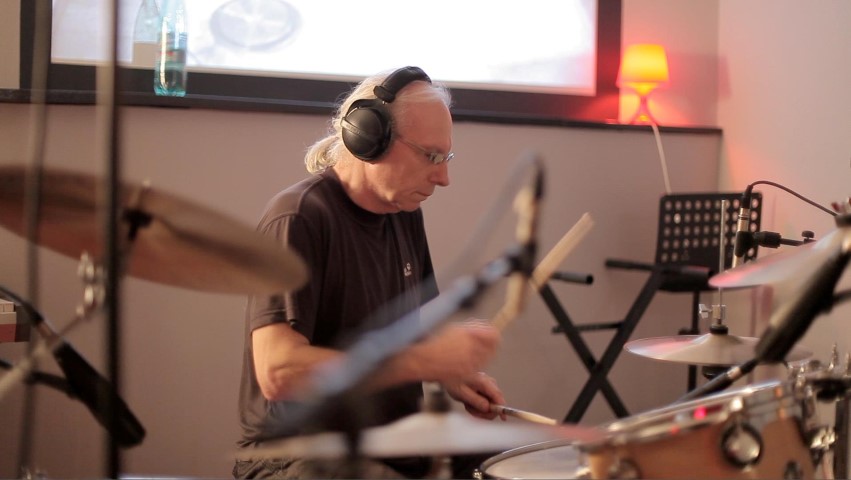When it comes to French-born English drummers, we can’t leave Boris Williams out. He is best known as the drummer for the English rock band The Cure. With the band, he made significant contributions to the music scene during his tenure.
Williams was known for his powerful drumming style and played a crucial role in the band’s live performances. His drumming can be heard on some of The Cure’s most iconic albums, including The Head on the Door and Kiss Me, Kiss Me, Kiss Me.
In this article, we will talk about the biography and career of Williams, exploring his time with The Cure and his impact on the band’s music.
Biography of Boris Williams

Boris Williams, who has Boris Peter Bransby Williams as his full name, was born on 24 April 1957 in Versailles, France. This French-born English Drummer was born into a family with six siblings; he has four sisters (Juliet, Caroline, Mira, and Sarah), two brothers (Michael and Morgan), and two parents. In his younger days, he dated Caroline Crawley, the lead vocalist of Shelleyan Orphan.
Williams developed a passion for music and was heavily influenced by various genres, including jazz, rock, and funk. In the 1970s, he began playing in local bands and eventually gained recognition for his skills as a drummer.
Music career
In 1984, Boris Williams joined a band called The Cure and replaced the previous drummer, Andy Anderson. He was fired for damaging a hotel room following a racially charged altercation with a security guard. With The Cure, Williams did the first show on 7 November in Minneapolis, Minnesota, USA.
Williams worked with the band to record several studio albums, which helped them reach their artistic and commercial zenith. Moreover, he also starred in the videos for Staring at the Sea, The Cure in Orange, Play Out, Picture Show, Galore, and Greatest Hits.
He was known for his powerful and energetic drumming style, which helped to shape the band’s sound and contribute to their success. However, In 1994, Williams left the group. His last concert performance took place on June 13, 1993, at Finsbury Park as part of a fundraiser for London’s radio station, XFM Radio.
After leaving The Cure, Boris Williams continued to pursue his music career, collaborating with various artists and bands as a session drummer. Together with his then-girlfriend Caroline Crawley, he formed the band Babacar. While the band was acoustic recording their Greatest Hits album in 2001, Williams briefly reunited with The Cure but did not formally do so. He also attended parts of the recording sessions for the Cure’s 2004 album, The Cure.
The Discography

As a member of The Cure, Boris Williams played on several of the band’s albums and contributed to their discography. Some of the albums that he appears in include: The Head on the Door (1985), Standing on a Beach (1986), Kiss Me, Kiss Me, Kiss Me (1987), Disintegration (1989), Mixed Up (1990), and many more.
Besides his work with The Cure, Williams also released solo material and collaborated with various artists and bands. He contributed to the music of many different artists, including the Thompson Twins, Strawberry Switchblade, and Robbie Nevil. His discography includes a wide range of genres and styles, reflecting his diverse musical influences and interests.
Why Did Boris Williams Leave The Cure?

Boris departed the band because he was bored with the band’s sound and dissatisfied with Porl (Pearl) Thompson‘s replacement. In addition, Boris had other medical issues that could have had a negative effect in addition to his vision loss. However, he has made brief appearances twice afterward.
Conclusion
In conclusion, Boris Williams is a talented and influential musician who made significant contributions to the music of The Cure. Many fans and critics acknowledge him as one of the best drummers that The Cure ever had. His powerful and energetic drumming style is his signature that will always be remembered.
Williams was a vital member of The Cure, appearing on several of their most iconic albums and performing with them on tour. Williams left the band in 1994, but his influence is still felt today in the British and France genres.


